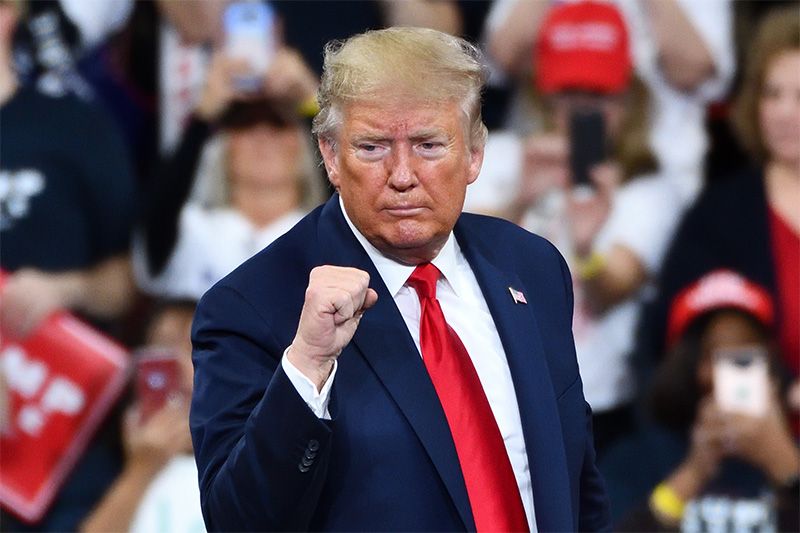Is Trump trying to stage a coup?
BY DEIRDRE O’LEARY, Staff Writer
WASHINGTON, D.C. — The election is over. Joe Biden won. But Trump is refusing to acknowledge the election results or concede, though he did approve some of the typical transitions of power. He continues to cast doubt on the integrity of the voting process. Secretary of State Mike Pompeo has spoken of preparing for a transition to a second Trump term. What is going on?
One possibility is that Trump is attempting a coup d’état — defined by Wikipedia as “an illegal, unconstitutional seizure of power by a political faction, the military, or a dictator.” This, of course, would be almost unprecedented in the United States. Almost because in the 2000 election, then-Florida Secretary of State Katherine Harris ordered the vote recount be stopped, even though 178,000 ballots were left uncounted, giving the win to George Bush by 537 votes. This can be considered a coup, backed by the U.S. Supreme Court in Bush vs. Gore.
Technically speaking, what is happening now cannot properly be called a coup because Trump cannot seize power from himself. According to a recent article in the online publication The Intercept: “What Trump could attempt is known as an “autogolpe,” which typically involves leaders remaining in office beyond their term by suspending the Constitution, shuttering the courts, and ruling by fiat with the acquiesce of the military.”
This may sound farfetched, but it is still possible. Trump could use the military to stay in office. His firing of Defense Secretary Mark Esper after the election on Nov. 9 had some wondering if he is planning to seize power illegally.
Esper was replaced by Christopher Miller, head of the National Counterterrorism Center. Why Trump found it necessary to replace the defense secretary with only two months left in his term is a matter of speculation. According to CNN, three other top officials at the Defense Department have been fired or quit since the election.
There could be a few constitutional ways for Trump to remain president. First, by way of the 12th Amendment. This states that the winner must have 270 Electoral College votes, and if no one does, the House of Representatives will choose the president. However, this would be done on a one vote per state basis, giving rural states the same vote as large states with several urban centers, and giving the Republicans the advantage.
As a practical matter, Biden has more than enough Electoral College votes at 306, compared to 232 for Trump. Georgia, with 16 Electoral College votes, has completed two recounts without any change in the results. The Republicans would have to cast sufficient doubt on at least 36 Electoral College votes to bring Biden down below the threshold of 270. At this point, this is not going to be a viable path to overturn the election.
Second, Article 2 of the Constitution says that each state must appoint electors (the Electoral College), but it does not say how. Tradition has been that they do so according to the popular vote. States could choose under pressure to assign electors differently, however. This would lead to legal challenges, and if they ended up in the Supreme Court, could be favorable to Trump.
Trump and other Republicans have attempted to cast doubt on the election’s legality, particularly concerning mail-in ballots. Trump has filed lawsuits in several states, without evidence, disputing the election results.
Almost all of these have been thrown out already, and no one expects any of them to be seriously entertained without evidence. Officials in several states have publicly spoken of the integrity of the election in their state. At this point, it seems like a long shot that Trump can remain in power by contesting the vote count.
Trump supporters marched on Washington on Nov. 14, supporting his refusal to concede the election to Biden. Many are concerned about right-wing militia groups and terror organizations such as the Proud Boys and Boogaloo movement, who attended the march, being used to support Trump’s attempt to remain in office.
The Electoral College will hold its formal vote on Dec. 14. President-elect Biden’s inauguration is scheduled for Jan. 20, 2021. We may not have a final answer until then.








